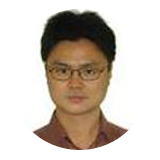Invited Speaker

Dr. Wenjie Cai
ProfessorCollege of Information Science and Technology, Donghua University, China
Speech Title: Premature beats identification using deep learning
Abstract: Premature beats including premature ventricular contraction (PVC), premature atrial contraction and premature junctional contraction. The latter two are called supraventricular premature beats (SPB). Occasional premature beats may happen in healthy people, whereas frequent ones indicate heart diseases. The China Physiological Singal Challenge (CPSC) 2020 aims to identify the premature beats in long time recorded dynamic single-lead ECGs. To solve this challege, we proposed a deep learning architecture containing multi-dilated convolutional blocks and Squeeze-and-Excitation networks. Firstly, the data were preprocessed to correct baseline wandering and remove high-frequency noise. Secondly, the data were fed into the deep learning neural networks to extract features related to premature beats. Finally, the extracted features were further processed by a decision algorithm to get the classifications of the ECG beats and the locations of the premature beats. The proposed model was trained with CPSC 2020 dataset which contained ten long records and evaluated with the hidden dataset. The first stage results of the challenge showed that the PVC score reached 60640 and the SPB score reached 51710. In conclusion, our algorithm showed acceptable performance in dectecting premature beats and is promising in real-time applications.
Keywords: deep learning; premature beat; CPSC
Biography: Dr. Wenjie Cai got a bachelor's degree in basic medicine in 2002 and a PhD degree in physiology in 2007 at Fudan University, Shanghai Medical College. He found the proangiogenic effect of hydrogen sulfide and the related published paper has been cited more than 260 times. From 2012 to 2014 he worked as a visiting scientist in Department of Cell Biology, Johns Hopkins University. He then developed interest in A.I. and got a bachelor's degree in computer science in 2016. Now he is an associate professor at School of Medical Instrument and Food Engineering, University of Shanghai for Science and Technology. His research interest focuses on medical A.I. and he won the 2nd place in the China Physiological Signal Challenge 2018 and the 1st place in the China Physiological Signal Challenge 2019.
